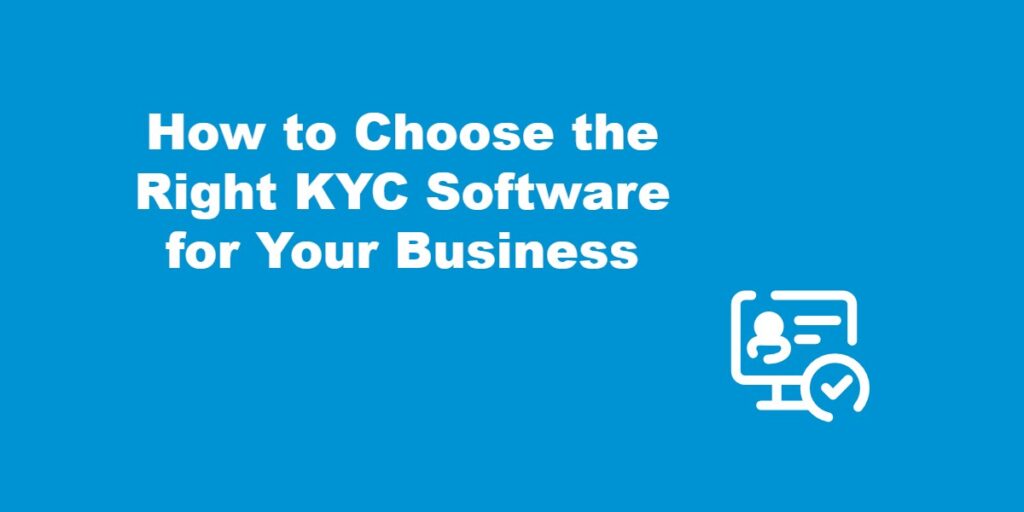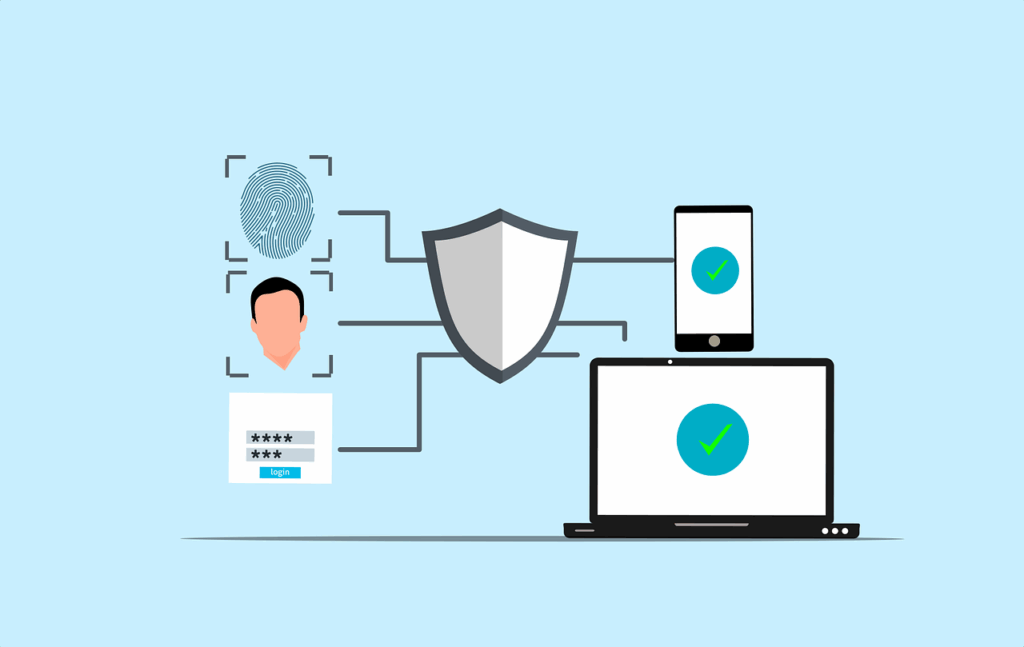The number of money laundering cases is increasing around the world. According to the United Nations Office on Drugs and Crime (UNODC), 2 to 5% of global GDP is laundered each year, and the percentage is steadily creeping up with every passing year. As a financial institution, being vigilant over money laundering can safeguard your operations and keep you out of legal ramifications. More importantly, it can help you stay compliant with laws like Know Your Customer (KYC) and Anti-Money Laundering (AML).
Both KYC and AML are often seen as complex processes. Nevertheless, they are necessary, and when used well, they can even give you a strategic advantage. At the same time, it can consume time and resources because of the lengthy checks they entail. To make the most of the benefits with minimal resources, many organizations are turning to KYC software.
In this guide, we will talk about how you can choose the right KYC software for your business.
What is KYC Software and Why is it Important for Your Business?
As the name suggests, KYC software can help businesses verify the identity of their customers. It automates the process of gathering data and documents from the customer and checking against national and international databases and watchlists. With such a streamlined approach, KYC software can identify customers who have been involved in past money laundering crimes or are considered politically exposed.
Additionally, KYC software can help your business in the following ways.
- Digital upload of customer ID documents.
- Automatic capture of the customer’s photo.
- Comparison of the captured photo with the image on the provided documents.
- Checking the names on documents against global databases and watchlists.
- Assess potential risks based on geography or region.
- Evaluate the political connections or risks.
- Maintain records for compliance.
With these features, KYC software can speed up the onboarding process for your customers while protecting you from legal and compliance risks – all with minimal resources.
Choosing the Right KYC Software
Before heading into how you can go about choosing a KYC software, let’s talk a bit about understanding what you need. This means knowing your business needs, goals, and processes well enough to make a list of features you’d need in a KYC software.
Pre-evaluation Questions
To this end, here are some possible questions to ask before you make a list of the required features in a KYC software.
- What industries and jurisdictions do you operate in? What are the mandatory standards and regulations in those regions?
- Do you onboard individuals, businesses, or both?
- Does your business need basic ID verification or Enhanced Due Diligence (EDD) checks?
- What is the expected volume?
- How frequent is the onboarding process?
- Do you need multilingual or regional support?
Based on these questions, you can identify the must-have and good-to-have features of your KYC software.
Must-have Features
Next, let’s talk about the must-have features in any KYC software. These features provide the core functionality for the software, and must include the following.
Identity Verification
Every KYC software must be able to extract data from documents like passports, driver’s licenses, and national ID cards. It must support Optical Character Recognition (OCR), liveness detection using selfies or videos, and biometric comparison. Using these features, the software must detect fake IDs, mismatched faces, and documents that have been digitally altered.
Watchlist Screening
Besides gathering data from customers, the software must immediately compare it with global databases and watchlists. It must tap into databases, like OFAC, UN sanctions, Interpol, PEP lists, and adverse media sources. Also, the tool must provide risk scores, where there is a match.
Customizable Checks
Customers fall into different categories, and accordingly, their risk levels will also vary. This is where you need flexibility and customization. The KYC tool must allow you to build custom rules based on the likely risk profiles of your customers and conditional workflows for users who fall into varying risk levels. Such flexibility makes the onboarding process smooth for your customers and at the same time, ensures compliance with KYC requirements.
Audits and Reports
The KYC tool you select must generate reports that meet the KYC requirements. It helps to have tools that come with pre-built reporting templates, so the data can be filled in automatically. The KYC software must also generate audit trails and gather evidence to prove compliance in the event of an audit.
Integration
Your selected KYC software must work smoothly with your existing tech stack. In general, check for APIs, webhooks, and SDKs to integrate this tool into your infrastructure.
Once you’ve checked for the presence of these core features, it’s time to look at the good-to-have features to improve security and performance.
Evaluate Security and Data Protection
As you will be collecting, storing, and processing sensitive information, you must know if the KYC tool has the required security mechanisms in place to safeguard this data from unauthorized access. Some of the other security features to look for are:
- Data encryption, both at rest and in transit.
- Compliance with privacy laws.
- Secure cloud hosting.
- Role-based access controls.
- Audit certifications from independent third-party auditors and standards.
- Penetrating testing results.
Check the evidence shown by vendors and verify their authenticity because you could end up becoming liable for data breaches.
Check Vendor Track Record
As a part of your evaluation, check the track record of vendors before buying from them. Specifically, look for features like financial stability, quality of customer support, existing list of clients, updates made to the software over the last few years, response time for queries, and more. Based on these factors, decide how quick and agile the vendor is, and how well the company can support your KYC requirements.
Area of Coverage
Next, check if the KYC software covers the standards that apply to your business and in your specific region of operations. For example, companies in the UK must comply with FCA’s KYC and AML requirements, while companies operating in the U.S. must meet the requirements of FinCEN, Bank Secrecy Act, KYC/CDD, OFAC, and more.
Scalability and Automation
As your business grows, the number of customers and their onboarding volume will also increase. The tool you select must be able to scale to these growing needs. Moreover, the tool must have advanced automation capabilities to process the records of thousands of users working in high-risk sectors.
While evaluating these capabilities, ask the following questions.
- Can the software handle spikes in user signups?
- Does it support batch verifications?
- Can it support reverifications?
- Does it use AI-driven scoring?
- Does it leverage advanced technologies like behavioral analysis and machine learning?
Cost and Pricing Models
Another important aspect is the cost and the pricing model offered by the vendor. Though most vendors offer a pay-per-verification model, some have tiered and monthly pricing. The volume and types of verifications also have a bearing on the cost. Some tools may levy additional charges for support and maintenance, and this is something you must check for.
In general, request a full breakdown of the costs and keep an eye out for hidden charges. Ideally, you’d want a tool that has transparent pricing, so you can budget accordingly.
Additional Features
Besides the above aspects, check if the tool combines AML checks, as most time, both KYC and AML go together. Also, if you’re operating across multiple regions, it helps if the same tool can cover all the regions. Such features reduce tool sprawl and provide greater control and visibility.
Overall, the above factors can help identify the best KYC software that’s right for your business.
Here’s a table that shows how much weightage you must give to each of the above factors.
| Criteria | Weight |
|---|---|
| Core features | 30% |
| Coverage | 20% |
| Security | 20% |
| Scalability, automation, and ease of use | 10% |
| Integrations | 10% |
| Cost | 10% |
Assign a score for each criterion and use a weighted average calculation to make your decision.
Download the checklist here.
Final Thoughts
To conclude, choosing the right KYC software can help you balance compliance requirements, ease onboarding, and control resource usage. Ideally, you’d want a tool that is easy for customers to upload their documents and verify their identity, uses minimum resources through automation and pre-configured workflows, and meets the compliance requirements of the regions in which you operate. Vendor reliability, scalability, and costs are other factors to consider.
We hope this guide is a good starting point to select the right KYC software.
Download our checklist and get started.

